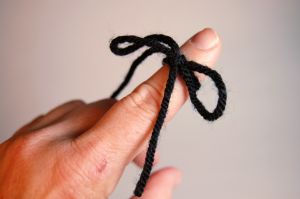To sum up all my wonderful expert knowledge on string theory and query writing:
— It is a theory of everything
— It involves lots of extra/alternate dimensions
Query as Theory
The query is supposed to be the end-all-be-all letter. It is how you get a literary agent to look at your novel in the hopes that he or she will represent and sell it to a publisher.
THE MISSION is to create an exceptional query letter – and do it in less than 300 words. I have accepted this mission, even with the more than 90% probability of failure.
The Art of the Query
There is an art to this, but everyone seems to have his or her own definition of what this ‘art’ should look like. And by everyone, I mean literary agents. Under no circumstances should you assume that anyone else knows what they’re talking about when it comes to query writing. So don’t take what I say here as the only way to write a query, because it’s not. I’m not a literary agent. I’m just another writer trying to get published.
You can visit these literary agent blogs and see what each has to say about how he or she wants the query to be written:
Nathan Bransford II Pub Rants II Bookends, LLC II Lyons Literary, LLC
You might notice several things:
1. There is overlap in what each agent wants in a query letter (title, word count, genre, pitch or hook)
2. Each agent prefers the information tweaked a certain way
3. Most agents will admit that they have signed a client or requested a partial from a letter that did not follow their query rules.
Alternate Dimensions
What genre is my book? Women’s Fiction? Action Adventure?
The simple answer: make sure the genre you use in your query letter is one the literary agent actually represents.
There are plenty of books that fit into only one genre (think category romance, etc.). There are also plenty of books that crossover.
If I really like a literary agent who only represents women’s fiction, then maybe my novel is women’s fiction. If the agent represents multi-cultural fiction, then suddenly my novel is multi-cultural fiction — because it is, and because it’s also women’s fiction and it’s also action adventure and maybe even the classic hero’s journey. The reason I’m trying to get a literary agent to represent me is because I want professional expertise on how to sell the book.
Check out the BookEnds, LLC post about figuring out the genre of your novel. The post and comments discuss how various publishers and bookstores will categorize the same novel. Now think about how that might apply when you query a literary agent.
The Point Is
The publishing industry is a not so friendly place for new writers. Do things that will open doors of opportunity, not close them.
If you are in the midst of querying, or will be soon, I wish you lots of good luck!
Next Time
For the next few Wednesdays, expect links, books and other resources related to
— writing a query letter for your novel
— and some tips and tricks that might help
— prevent a query writing breakdown.

1 Comment
Comments are closed.